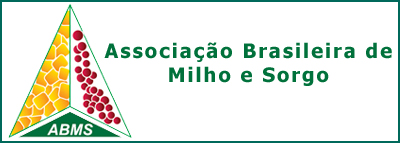INCIDENCE OF CHARCOAL ROT (Macrophomina phaseolina) IN MAIZE HYBRIDS IN DIFFERENT ENVIRONMENTS DURING OFF-SEASON
DOI:
https://doi.org/10.18512/rbms2023v22e1319Abstract
Maize cultivation in Brazil can occur during the summer or off-season. Diseases are significant contributors to production losses. Charcoal rot (Macrophomina phaseolina) is the primary disease affecting off-season maize crops. This study aimed to assess the incidence of charcoal rot in commercially available maize hybrids under different soil water availability conditions during the off-season. The experiments were conducted at the Embrapa Research Facility, located at Invernadinha Farm. The experimental design was a randomized block design with three replicates. The first experimental crop was sown on February 21, 2022, in a red-yellow Latosol soil environment (Environment 1). The second was sown on March 3, 2022, in a Concretionary Petric Plinthosol soil environment (Environment 2). Ten hybrids were used in each experiment. Plant height was measured after the plants reached physiological maturity, and ten stalk samples were collected from each plot. Afterward, the microsclerotia of M. phaseolina were identified visually in the laboratory. Data are expressed as percentages and subjected to a joint analysis of variance. These results indicate that soil conditions of higher water stress, in conjunction with elevated temperatures, significantly enhanced the development of charcoal rot and directly affected plant productivity. A joint analysis of the environments revealed that the AS1820, AS1822, and P3707 hybrids had the lowest average incidence of charcoal rot and the highest yields.
Downloads
Published
How to Cite
Issue
Section
License
Copyright (c) 2023 Revista Brasileira de Milho e Sorgo

This work is licensed under a Creative Commons Attribution 4.0 International License.
Authors retain copyright and grant the journal right of first publication with the work simultaneously licensed under the Creative Commons Attribution License that allows the sharing of work and recognition of the work of authorship and initial publication in this journal.
Authors are able to take on additional contracts separately for non-exclusive distribution of the version of the paper published in this journal (eg, in an institutional repository or publish as a book), with acknowledgment of its initial publication in this journal.
Authors are permitted and encouraged to post their work online (eg, in institutional repositories or on their website) at any point before or during the editorial process, as this may leadto productive exchanges, as well as increase the impact and citation of published work.



